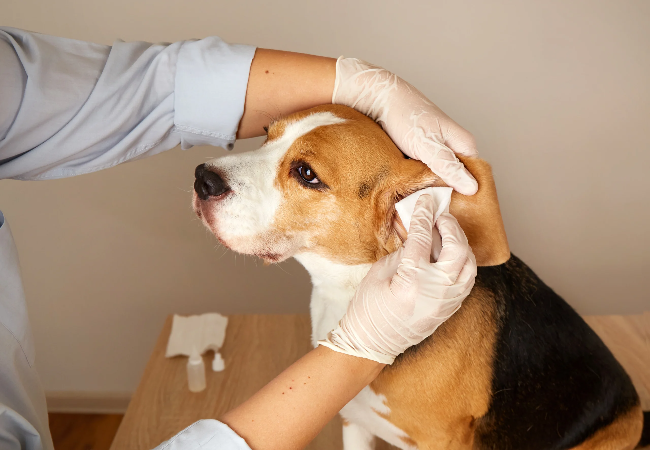Seasonal Allergies in Dogs in 2025: Vet‑Backed Guide 🌼🐾

In this article
Seasonal Allergies in Dogs in 2025: Vet‑Backed Guide 🌼🐾
By Dr. Duncan Houston BVSc
📌 What Are Seasonal Allergies?
Seasonal allergies (atopy) occur when a dog’s immune system overreacts to environmental allergens like pollens, mold, dust mites, or grass—often during spring, summer, and fall.
🔍 What Causes Them?
- Pollen from trees, grass, weeds, mold spores, and dust mites
- Even contact allergens—plant fibers, household dust—can trigger reactions
- Genetic predisposition—certain breeds like Labs and Terriers are more susceptible
👀 Signs to Watch For
- Intense itching, scratching, licking—especially paws, belly, underarms, face, ears
- Red, inflamed skin; hot spots and secondary infections
- Sneezing, runny nose, watery eyes in some dogs
- Chronic or recurring ear infections
🩺 How Are They Diagnosed?
- Based on symptoms, annual recurrence, and physical exam
- Rule out fleas, mites, food allergies, infections
- Allergy testing (blood or skin) may be recommended
💊 Treatment Options
- Oral antihistamines (Benadryl, Zyrtec) or prescription meds like *Zenrelia*, *Cytopoint*, *Apoquel*
- Steroids for short-term control during flare-ups
- Essential fatty acids (omega‑3) to reduce inflammation
- Topical therapies: medicated shampoos, oatmeal baths, sprays
- Allergy immunotherapy (injections or drops) to desensitize over time
🛡️ Prevention & Comfort Tips
- Keep track of local pollen counts & avoid walks during peaks (dawn/dusk)
- Wipe paws and coat after outdoor time
- Bathtub hygiene—bathing 1‑2x/week with hypoallergenic shampoo
- Use HEPA air filters; keep windows closed on high allergy days
- Provide omega‑3-rich diets or supplements
- Maintain flea control; allergic dogs are more vulnerable
📈 Prognosis
Seasonal allergies are lifelong but manageable. With proper treatment and home care, most dogs live comfortably—even during peak seasons.
📞 When to See the Vet
- Persistent or worsening itch, infections, ear problems, or respiratory signs
- New swelling, hives, or systemic signs like vomiting or diarrhea
- When over-the-counter treatments aren’t sufficient
Need help during flare‑ups? Use the Ask A Vet app anytime for fast, professional guidance 📱.






